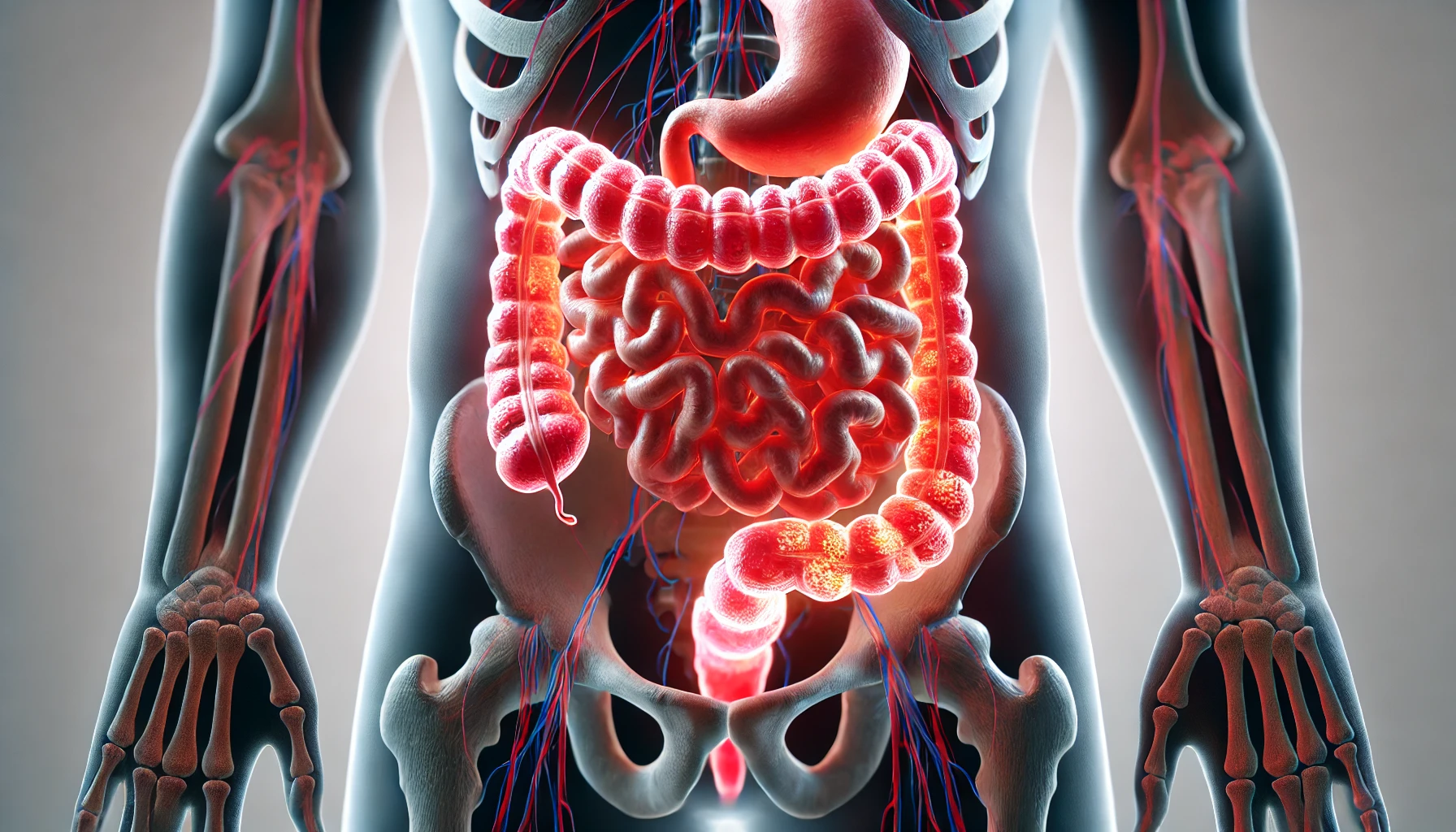This post was written with Consensus AI Academic Search Engine – please read our Disclaimer at the end of this article. Crohn’s disease (CD) is a chronic inflammatory condition of the gastrointestinal tract, characterized by periods of remission and relapse. It can affect any part of the gastrointestinal tract from the mouth to the anus but most commonly affects the terminal ileum and colon. Understanding the symptoms and causes of Crohn’s disease is crucial for effective management and treatment.
Symptoms of Crohn’s Disease
The symptoms of Crohn’s disease can vary widely among individuals and depend on the location and severity of the inflammation.
Common Symptoms
- Diarrhea: Frequent, loose, or watery stools are a hallmark of Crohn’s disease. This symptom is often accompanied by urgency and can significantly impact daily life1 2.
- Abdominal Pain: Patients often experience cramping and pain in the abdomen, which can range from mild to severe. This pain is typically located in the lower right quadrant but can occur anywhere in the abdomen1 2.
- Weight Loss: Unintentional weight loss is common due to malabsorption of nutrients and reduced appetite1 2.
- Fever: Low-grade fever is a common symptom during active disease flares1 2.
Other Symptoms
- Lower GI Bleeding: This is more common in patients with colon-only involvement and can lead to anemia1 2.
- Perianal Complications: These include fissures, fistulas, and abscesses, which are particularly prevalent in patients with colon involvement1 2.
- Extraintestinal Manifestations: Symptoms outside the gastrointestinal tract, such as arthritis, skin rashes, and eye inflammation, are also observed1 2.
Causes of Crohn’s Disease
The exact cause of Crohn’s disease remains unknown, but it is believed to result from a combination of genetic, environmental, and immunological factors.
Genetic Factors
- Family History: Individuals with a family history of Crohn’s disease are at a higher risk of developing the condition, suggesting a genetic predisposition1 2.
- Genetic Mutations: Specific genetic mutations, such as those in the NOD2 gene, have been associated with an increased risk of Crohn’s disease1 2.
Environmental Factors
- Diet: Diet plays a significant role in the management and potential exacerbation of Crohn’s disease. Certain diets, such as the Specific Carbohydrate Diet (SCD), have shown promise in reducing symptoms and inflammation in pediatric patients3.
- Smoking: Smoking is a well-established risk factor for Crohn’s disease and can worsen the severity of the condition1 2.
Immunological Factors
- Immune System Dysfunction: Crohn’s disease is characterized by an abnormal immune response that leads to chronic inflammation of the gastrointestinal tract. This involves overproduction of cytokines and inadequate regulation of the immune response4.
- Anemia: Chronic inflammation and intestinal blood loss can lead to anemia, which is a common complication in Crohn’s disease. Treatment with intravenous iron and erythropoietin has been shown to improve anemia and quality of life in affected patients4.
Conclusion
Crohn’s disease is a complex condition with a wide range of symptoms and multifactorial causes. Understanding these aspects is essential for effective management and improving the quality of life for patients. Ongoing research continues to uncover new insights into the pathogenesis and treatment of Crohn’s disease, offering hope for better therapeutic strategies in the future.
Disclaimer
The content presented in this blog is generated by Consensus, an AI-powered academic search engine, and is based on publicly available scientific literature. While every effort is made to provide accurate, up-to-date, and well-researched information, the content is intended for informational and educational purposes only. It does not constitute medical advice, diagnosis, or treatment. Always consult a qualified healthcare professional before making any decisions regarding medical conditions, treatments, or medications. The AI system’s analysis may not cover all perspectives, emerging research, or individual cases, and it is not a substitute for professional expertise. Neither the blog publisher nor the developers of the AI-powered search engine are responsible for any actions taken based on the information provided in this content. Use of this information is at your own risk. Citations to the original scientific studies are included for reference, but these studies should be reviewed in full and interpreted with the guidance of a healthcare or research professional.
If you are experiencing a medical emergency, please seek immediate attention from a healthcare provider.
